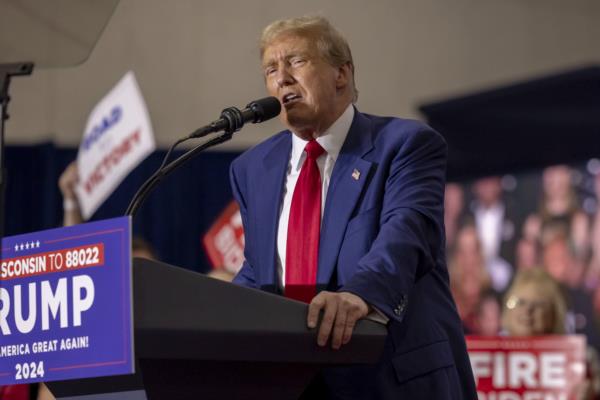
A recent poll conducted by The Associated Press-NORC Center for Public Opinion Research sheds light on Americans' views regarding presidential power and the system of checks and balances in the United States.
The poll reveals that while Americans generally support the concept of checks and balances to prevent any branch of government from becoming too powerful, their opinions on presidential power tend to shift based on the political party in office.
Notably, about 2 in 10 Americans believe it would be beneficial for the next president to have the ability to change policy without waiting for approval from Congress or the courts. This sentiment is more pronounced among Republicans, with nearly 6 in 10 supporting unilateral action by a future President Donald Trump.
The current political climate of escalating polarization has led to a willingness among the public to challenge the traditional political framework that has maintained the stability of U.S. democracy for over two centuries. Only 9% of Americans feel that the system of checks and balances is working extremely or very well.
With Congress experiencing gridlock and low productivity, many Americans are divided on the distribution of power among the branches of government. While some advocate for expanded presidential power to address pressing issues, others emphasize the importance of congressional approval and judicial oversight.
As the presidency has gained influence in recent years due to congressional deadlocks, the public's perception of which institutions hold excessive power is often influenced by partisan affiliations. Democrats are more likely to view the U.S. Supreme Court as having too much power, while Republicans express concerns about presidential authority.
Overall, Americans are grappling with the balance of power in the government and the role of the presidency in shaping policy decisions. The upcoming U.S. Supreme Court ruling on federal agency regulations and the potential for a shift in federal bureaucracy control following the next presidential election are expected to further impact the dynamics of power distribution in the country.
Despite differing opinions on the extent of presidential power, many Americans agree that major policies should undergo congressional approval and judicial review to ensure accountability and adherence to democratic principles.







